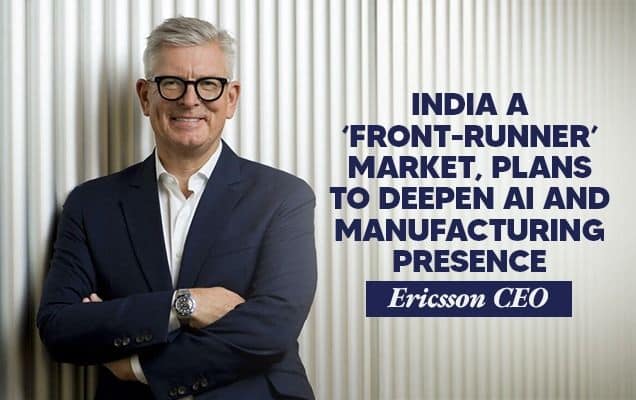His Majesty the King of the Zulu Nation,
King Goodwill ZwelithinikaBhekuzulu
Hon'ble Premier of the KwaZulu Natal Proince
Your Worship the Mayor of eThekwini Municipality,
Distinguished guests, Brothers and sisters,
Namaste, Vanakkam,
Sanibonani
Thank you very much, for your wonderful welcome to this beautiful city. Today is my day two in South Africa.It is indeed a great pleasure to be in Kwazulu Natal.It’s the land of Zulu warriors.It is the land to which Albert Luthuli belonged.A land where Gandhi became a Mahatma.
And a land with which India has nurtured:
• strong historical links;
• deep bonds of culture;
• flourishing economic engagement; and
• strong sporting contacts.
One of the hallmarks of this beautiful nation is its vibrant diversity.
And, no city celebrates this diversity better than the city of Durban and the province of Kwazulu Natal. This celebration of plurality:
• Of dialects and languages;
• of belief in multiplicity of faiths; and
• of cultural traditions.
is an integral part of this city's heritage.
With warm waters of the Indian Ocean on one side, and the Drakensburg mountain range on the other, even the nature rejoices in your rich diversity. And, by protecting your plurality you help preserve and advance Mandela's dream of a Rainbow nation. Your worship,For me, it is a matter of privilege to be given a public welcome by the city of Durban.You have not just honoured me. You have also recognized 1.25 billion of my countrymen. I say this because it was here in 1860 that the first Indians landed in South Africa. On 16 November 1860, the ship TRURO touched the shores of port Natal with 342 Indians. I learn that the first four to get down from that ship were Davarum, his wife and two small daughters. Today, over a century and a half later, Durban is the largest Indian city outside India.It is home to the largest population of people of Indian origin in South Africa. The sufferings of early generations of Indians under the apartheid and colonial rule are well known.But, against all odds, they preserved their culture and values.
And, today, they are proud, successful and loyal citizens of this country.They are contributing to their country:
• in education and scientific research;
• as entrepreneurs and leaders of businesses:
• as lawyers and judges; and
• as bankers, doctors and engineers.
But, they do not live only for themselves.
On their own, and alongwith community organisation, they are leading efforts to uplift the poor and under privileged, and for the care of sick and the elederly.They are running old age home, centres for the terminally ill, AIDS and cancer patients, and orphanages. Friends,The history of our people to people ties provides a strong foundation to build our modern day partnership. Today, India is undergoing an economic transformation. And, South Africa is one of the leading economies of Africa. Our trade and investment partnership is already substantial.
Yesterday in Pretoria, President Zuma and I agreed to advance our strategic ties across the whole range of social and economic sectors, including:
• trade and investments;
• development of small and medium businesses;
• Information and communication Technologies; and
• Capacity and institution building.
Several of these are core strengths of Kwazulu Natal, and would hence reinforce our traditional ties with Durban. We also agreed to work together for stronger security and defence relations.Friends,Being in South Africa, and especially in Durban, If I don’t talk about cricket it would be a no ball. The passion and love for this game runs wide and deep in our societies. And, cricket has been an important part of our relations. The Kingsmead ground has been home to many memorable matches, several of them between India and South Africa.
Friends,
In conclusion, let me say this.Today, in our inter-dependent world India's growth story is one of the brightest spots. But, India's economic advance is not for the benefit of our society alone. The embrace of our partnership is open to the larger good of Africa and our friends like South Africa. Earlier today, I visited Pheonix. Pheonix was Gandhi’s home during his stay in South Africa.The concerns of his fellow South Africans were foremost in Gandhi’s mind.While our challenges in the twenty first century may have changed, are developmental concerns are common.It would be my efforts, that the outcome of our development partnership reaches those sections of our society who needed the most, specially its youth.
Come, let us partner with each other and take advantage of the great opportunities that occupy our bright future.Thank you, once again, for this welcome and honour.
Thank you,
Thank you very much.
A special dance performance symbolizing the diversity of South Africa before PMs address pic.twitter.com/BbZDlzr6NA
— Vikas Swarup (@MEAIndia) July 9, 2016
Thank you very much, for your wonderful welcome to this beautiful city: PM @narendramodi at the civic reception in Durban
— PMO India (@PMOIndia) July 9, 2016
One of the hallmarks of this beautiful nation is its vibrant diversity: PM @narendramodi
— PMO India (@PMOIndia) July 9, 2016
Durban is the largest Indian city outside India. It is home to the largest population of people of Indian origin in SA: PM @narendramodi
— PMO India (@PMOIndia) July 9, 2016
Being in South Africa, and especially in Durban, If I don’t talk about cricket, it would be a 'no ball': PM @narendramodi
— PMO India (@PMOIndia) July 9, 2016
In our inter-dependent world India's growth story is one of the brightest spots: PM @narendramodi in Durban
— PMO India (@PMOIndia) July 9, 2016














